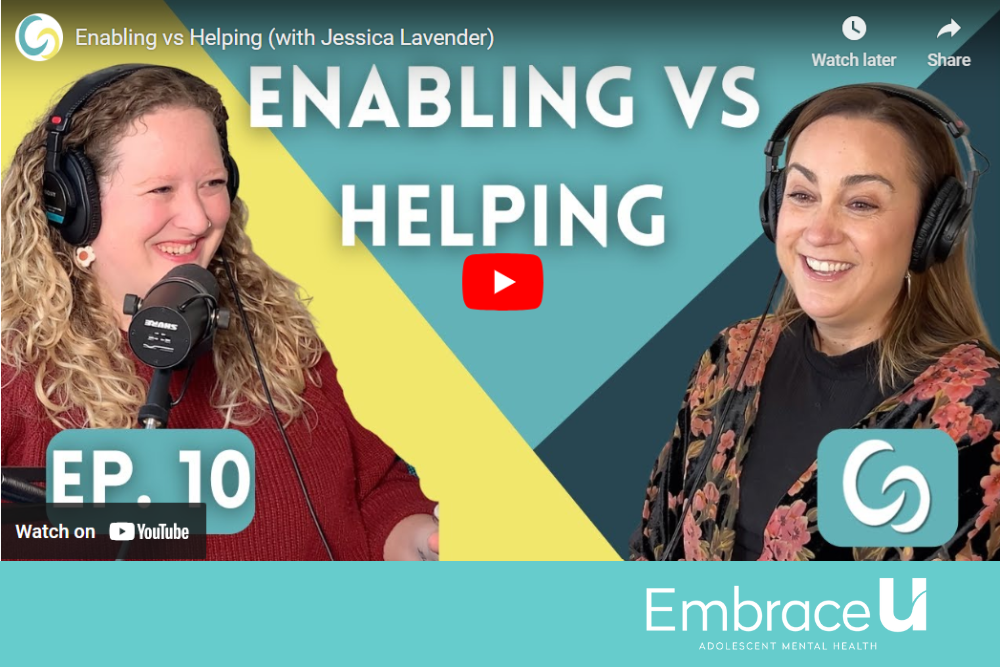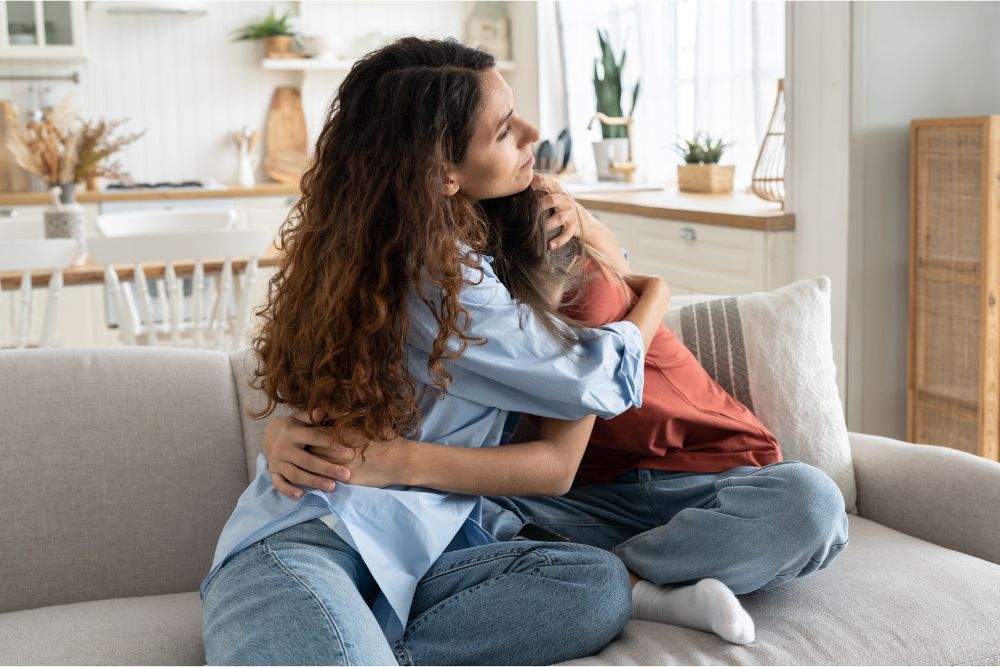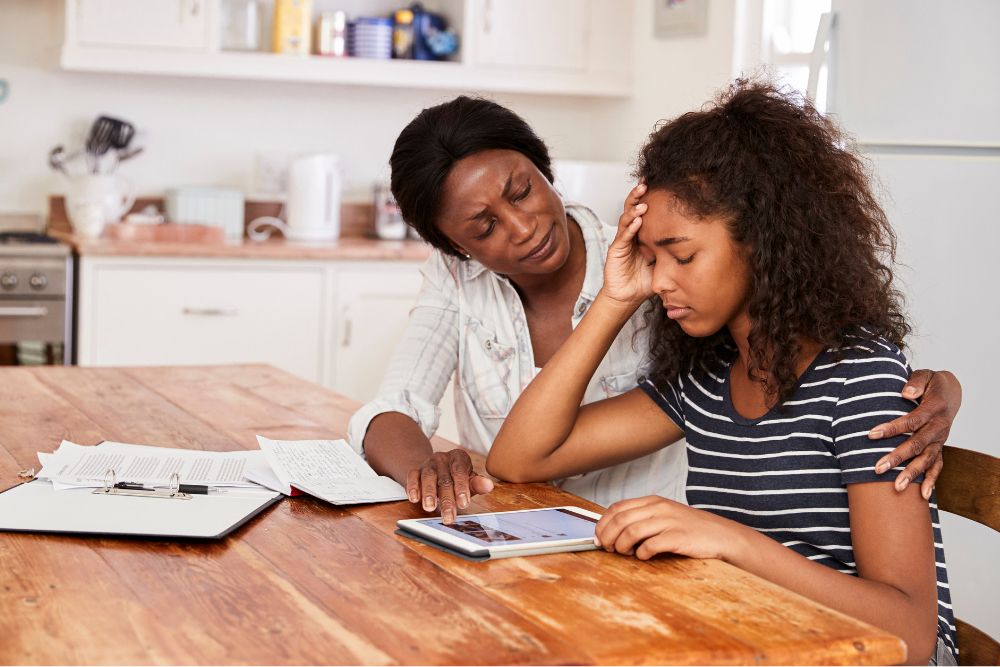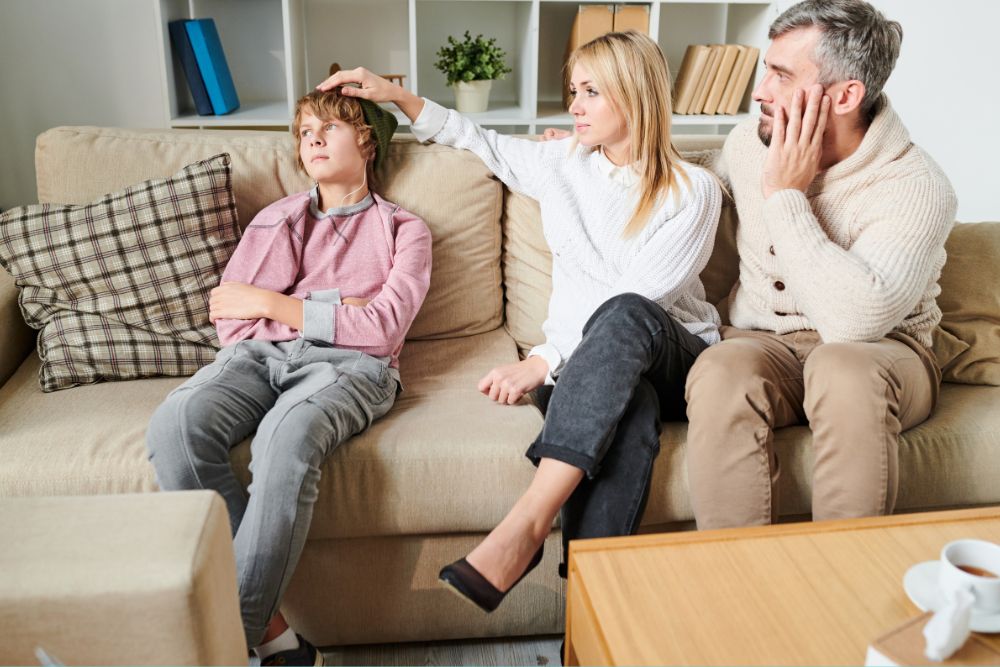Jessica Lavender, a licensed professional counselor, and administrator at Embrace U, talked with Lydia Thompson on the podcast “Counselor Off The Clock” about enabling vs. helping adolescents with a mental health condition and how symptom accommodation can actually make things worse. This might include keeping a child home from school as a way to manage their anxiety. Delaying mental health treatment can make symptoms more severe and harder to treat.
What is Symptom Accommodation?
In the world of mental health, symptom accommodation refers to cases where an individual changes their own behavior to help someone reduce or avoid distress caused by a psychiatric problem. This commonly occurs when a child or teenager experiences social anxiety and their parents help them avoid social interactions to reduce distress. In the context of a child with obsessive-compulsive disorder (OCD) and anxiety, accommodation can contribute to both the development and maintenance of the disorder, according to a study published in Sage Journals. In some cases, parents may accommodate the fears of their children to maintain their routine, or even participate in their obsessive rituals as a way to keep the peace.
Children who receive mental health symptom accommodation from parents and teachers could end up experiencing more severe symptoms as well as impaired daily functioning, according to research reported by the National Library of Medicine.
Here’s a transcript from a segment of the Counselor Off The Clock podcast about symptom accommodation.
Lydia: What is symptom accommodation?
Jessica: I’m gonna talk about this from the perspective of kids and parents because that is my world, but this applies really to anybody and a loved one who is experiencing a symptom of mental illness that is interfering with their life in a severe way. So as the loved one is the support person, symptom accommodation means that we are intervening in a way that actually perpetuates the symptom instead of supporting that person to overcome that symptom. I guess another way to say it is enabling. So we may be intending to support our loved one and really have the best intentions, but doing so in a way that allows the symptom to just probably get worse instead of better.
Lydia: Can you give an example of enabling more symptom accommodation?
Jessica: Yeah, so in our world a very frequent example of this is related to kids with school anxiety and school refusal. We see a lot of kids these days who are extremely anxious about school and have chronic absenteeism because of that anxiety. In fact, I mentioned this to you as I came in today, but there was an article that came out in The New York Times this week that says that since the pandemic, the number of public school students experiencing chronic absenteeism has increased from 13% pre-pandemic to 25% in the 2022-2023 school year. 25% of public school students have chronic absenteeism. That’s staggering to me but we see it a lot in our world. Kids just literally cannot get themselves to school. It’s usually due to depression and anxiety an example of symptom accommodation that we see a lot now is parents taking away the stress of school because there are options that didn’t exist pre-pandemic that are there now, like an online school option. So a lot of parents see their kid experiencing this extreme level of distress and think I can remove that stressor for them. I can help.
Lydia: I think from a parent’s perspective it’s like I am being helpful to my child by removing the stressor but that is causing them so much distress. Can you speak to things that are helpful and other things that are not helpful?
Jessica: Yes. So I think parents are thinking I’m going to help my child by removing the stressor and then there’s also like legal consequences for parents when their kid is experiencing so much school absenteeism, but they start to get truancy letters for this kind of quick fix in that moment. I know there are tons of reasons why people do homeschool and online school and there are other reasons that exist for that, and so I’m not just being critical of all those reasons, but when we do that, for the reason of accommodating symptoms of depression and anxiety, what we see is the depression, anxiety gets so much worse. It’s so hard to see because the longer that goes on more of those symptoms have built up and it’s really hard to treat.
Lydia: I hear it all the time, like, “How can I be helpful to my kid who is experiencing mental health problems?”
Jessica: So… thinking about it from the perspective of how do I support my kid through the symptoms versus supporting them to avoid the stressor what can be helpful is being their cheerleader, telling them, “I’m here for you, I’m gonna do this with you.” I tell parents all the time, “Be the cheerleader not the fixer.” Giving them treatment is really the best thing that you can do in this scenario and that may require a period of removal from the stress, right, and I think that’s very helpful when we’re working on the symptoms, but it’s not helpful if we’re saying, “We’re going enroll in online school, we’re not going do any treatments. I think this will just get better on its own after period of time.” It does not get better.
Lydia: No, it gets worse.
Jessica: It gets so much worse. Now you’ve taken your child out of any social interaction, any structure. Anxiety, you know, t builds the more time that we give ourselves to ruminate. What may start out as a little pea-sized fear becomes a giant fear, getting back into the world after a period away is so much harder.









